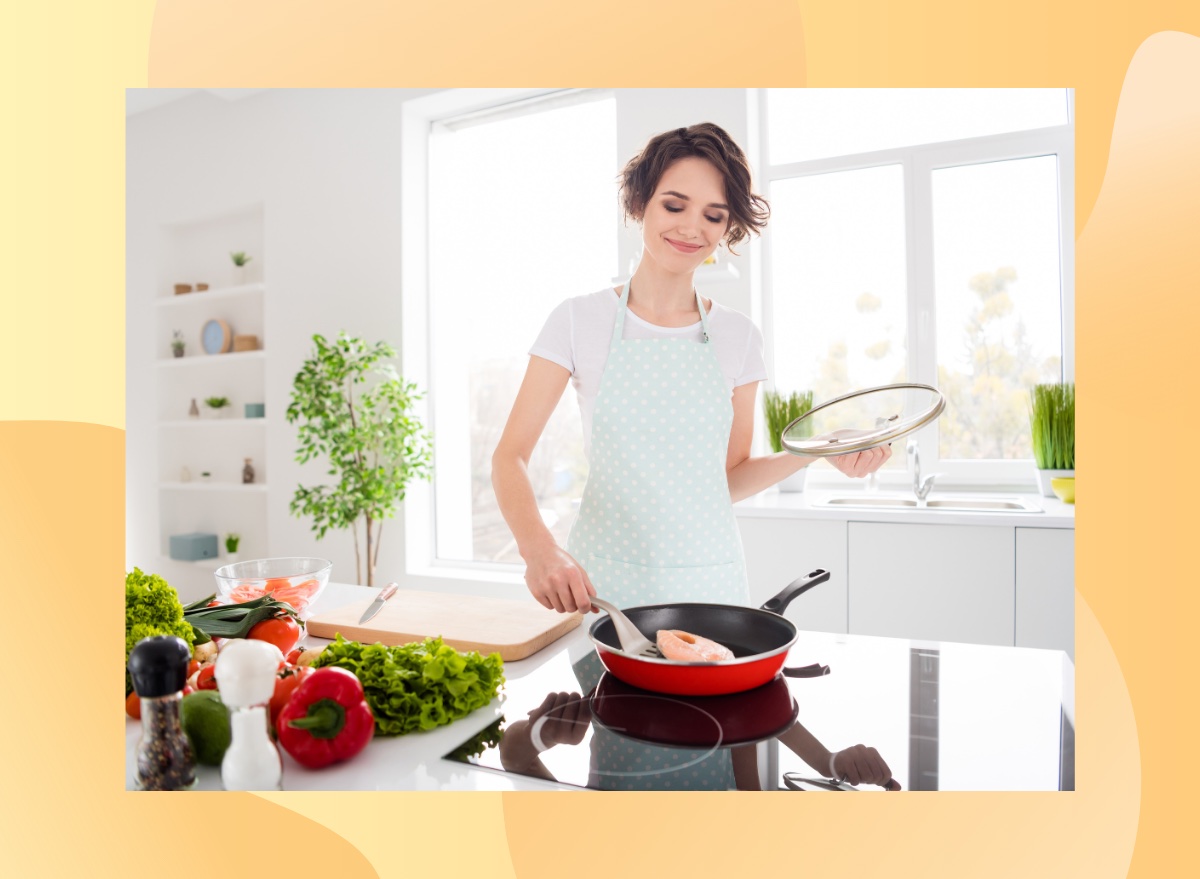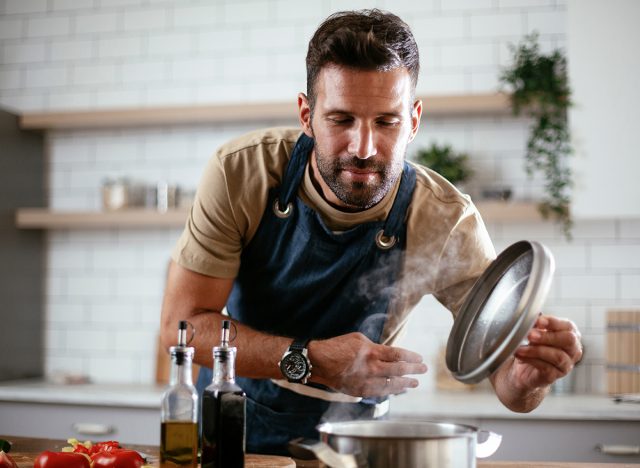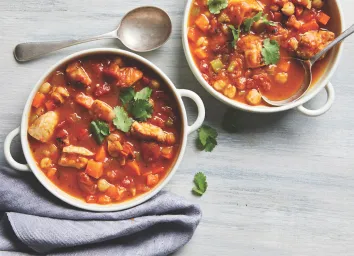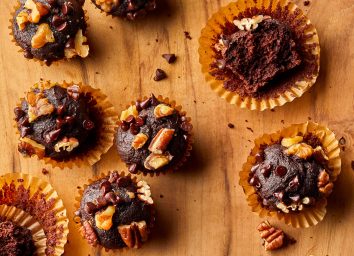This Eating Habit Will Make You Happier and Healthier, Says New Study

The world is a pretty stressful place right now, so it's crucial to take particular care of our mental and physical health. Whether that be through exercise, better sleep, or forming a self-care routine, it's important to find a habit that makes you feel energetic and happy– and there are many healthy habits to choose from. A new study has found that getting into the habit of cooking at home will not only make you feel happier, but it will also make you feel healthier.
A recent study from Edith Cowan University (ECU) suggests that confidence in the kitchen is your token to good mental health, with the added bonus of cooking delicious meals in your very own kitchen.
For the study, ECU teamed up with The Good Foundation and Jamie's Ministry of Food initiative, providing cooking classes to the community. A total of 657 participants committed to the seven-week healthy cooking course.
During the program, the ECU Institute for Nutrition Research academics measured the program's effect on both participants' cooking confidence as well as their mental health. They also looked at their overall satisfaction with cooking and diet-related behaviors.
Researchers discovered those who participated in the program saw great improvements in general health, mental health and subjective vitality (the state of feeling alive and alert) immediately after the program.

Not only were there improvements in the overall moods of the participants, but there was also an increase in cooking confidence as well as the ability to easily change eating habits and overcome lifestyle barriers to healthy eating.
"Improving people's diet quality can be a preventive strategy to halt or slow the rise in poor mental health, obesity and other metabolic health disorders," said lead researcher Dr. Joanna Rees in the study overview.
However, the quality of the food does not actually play as large of an impact on your mental health. The study also showed that participants' mental health improved even if the quality of their food wasn't sustainable. The mental health benefits were equal among participants who were overweight or obese to those in a healthy weight range.
While the study showed an overall positivity rate, 77% of participants who identified as female claimed to be confident about cooking, while 23% identified as male.
"This change in confidence could see change to the household food environment by reducing the gender bias and leading to a gender balance in home cooking," Dr. Rees said. "This, in turn, may help to overcome some of the barriers presented by not knowing how to cook, such as easing the time constraints which can lead to readymade meals which are high in energy but low in nutritional value."
If you're looking to become a culinary wizard in your kitchen and don't know where to start, try starting off with these 50 Healthy Recipes to Make in 10-Minutes (or Less).









